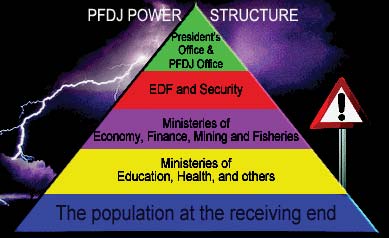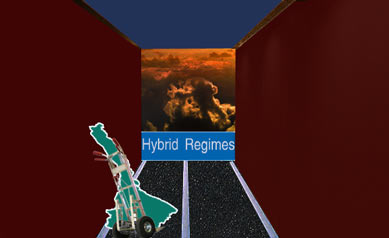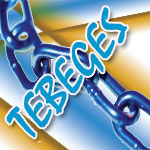Critique of Pure Reason: Concepts Aren’t Ambiguity of Ostension

Critique of pure reason was the first book of Immanuel Kant in 1781. The purpose of authoring the book was to give new status to “reason” and new contours to “understandings,” in making analytic and synthetic judgment for shaping the reality around us. In doing that Kant tried to separate the “ideas of reason” from the “concepts of understanding” [prolegomena 41, 4:329]. He also emphasized that Reason without the concept of understanding often appears as the source of errors and illusions. Reason is the arbiter of empirical truth in all judgments based on the conceptual understanding of the subject matter.
For purposes of empirical arguments, let me give you an example from the medical field that I am familiar with. A patient came with a groaning/aching sound to his doctor’s office. The fact the patient was groaning/aching was a reason for the doctor to believe his patient is in a pain – that is reasoning. But that reasoning should be based on the concept of pain and its symptoms, what pain entails to, its definition, how it works in the central nervous system, and how the general pain management is. Pain is the various conscious and unconscious responses to both sensation and perception, including emotional response. To respond to the stimuli of pain it is necessary to understand the nerves that support it – the “polymodal nociceptors” that respond to the chemicals released by the cells in the area from which the pain is originated. Furthermore the doctor will evaluate what kind of drug he will use to block the sensation/perception of pain at the receptor site of the nerve stimuli. So reasons are based on conventional concepts and understandings. In this essay (a) I will try to prove that there is a strong system that has paralyzed the political and economic development of our nation (b) will suggest the possible democratic transition for a peaceful and stable Eritrea.
Now, what is the purpose of this metaphoric approach of reasoning? Why did I bring it? Currently there is a debate at the “Awate forum” on the nature of the regime in Asmara and the “state” run by the regime. In the debate, one side was arguing (a) there is no system with institutions in the state of Eritrea, hence it is a one man’s institution (b) There is a “statecraft” in the governance of Eritrea, built in the last 23 years with some technology and knowledge-based transfer: in healthcare, education, energy, land management, banking, economy, finance, capacity building [read Saay’s comment in this link]. I argued against his argument.
Let us look at both arguments (a) and (b) not only their merits but also whether both arguments are complimentary to each other or not. Are they related and congruent to each other to make consistent argument? Or are they contrarian to each other? Before I proceed to argue on the merits of his argument vis-a-vis the Eritrean reality, I would like to see whether the two statements (a) and (b) compliment each other and make plausible argument. In doing so, I will define the Eritrean regime based on the existing political concepts and “limits of definitions” as Bertrand Russell has pointed out. By “limits of definitions” Russell means, that there is a scope and limits to semantic theory that curves up the territory of the conceptual definition to disallow divergences and confusions. Indeed in his argument my friend Saleh Younis did play semantics and politics at the same time to define the Eritrean regime out of the scope and limits of the definition of the term, for a regime that pushed the power and its institutions of central state far beyond controlling its subjects.
The Eritrean Regime Is A Totalitarian Regime
Totalitarian regimes are governments that aim to control the political, economic, social, intellectual, and cultural lives of their citizens. They make their citizens more than passively obedient by imposing their wishes on them. As a political philosophy they glorify the “state” by emphasizing the need for a strong government and “extreme nationalism” led by a dictatorial ruler. The term dictatorship signifies the governing principles of a “political system” with its “ideology” expressed in their own tyrannical political behavior and impulsive form of decision making. The domestic and foreign policies are usually made impulsively inspired by political activism often based upon an ideological Messianic aimed at disciplining the society.
Currently, Eritrea is governed by a single party (PFDJ) controlling the political, economic, social, and cultural lives of our people. Some Eritreans glorify their “tyrannical ruler” in the spirit of “Nhna Nsu, and Nsu Nhna” and in the current “statecraft” as alpha and omega to continue in building the capacity of our nation.
Actually in the awate forum, our friend Saleh Younis debated, that the problem in Eritrea is with the “office of the presidency” and not with the “statecraft” they have built. If statecraft means the art of leading a country with effective institutional functioning, doesn’t that in itself defines a “system” that functions well? Can a “one man institution” run a statecraft that manages wisdom of public affairs and effective institutional functioning? I don’t think so. Interestingly enough, he is consciously contradicting himself to defend the “value system of PFDJ”. As much as he has the right to defend whatever value system he believes in, it would be disingenuous of Saleh to argue that there is a “statecraft” in Eritrea on the one hand and there is no “a system” as such on the other. A clear contrarian views in one mind.
PFDJ’S Pyramidal Structured of Power
In Eritrea we have an elite featured rule with Pyramidal power of an authoritarian regime. Our dictator controls the decisive key positions at the head of the “elite’s aggregate of power” consisting elements of the Eritrean defense force (EDF) and the police that controls the security of the “state and the party”. In an elite-related dictatorship like ours, a division of political functions exist almost by definition and structured system. The Yemanes, Zemhrets, Osman Salehs are the exemplary from the tutelage of Isaias in the politics of public sphere; The Philipos, Tekle Manjus in the rank and files of the EDF to protect the despot from any coup attempts; The Wedi Kassa, Simon G.Dengil in the security sphere to continue the infringements upon citizens’ legal right either to throw them into forced labor camps or imprisonment for a simple grievance the public might have uttered. The Hagos Kishas, Woldai Futur in the economic spheres, to monopolize the economic lives of citizens by the party. All these chains of powers are structured to make a strong institutionalized pyramidal power that defines the totalitarian system. The remaining institutions at the bottom of the pyramid will enhance the power at the top. Our dictator and his advisory committee in the current Eritrean socioeconomic situation, indeed have their own particular sociopolitical concept of planning, however deplorable it is in the eyes of the public.
The Model of Tunisian Transfer of Power
The outgoing president of the transitional government Muncef Marzouki has handed over the power to a democratically elected President Beji Caid Essebsi on December 30, 2014. Tunisians must be proud to have a democratic transition of power, the first of its kind. The elected president is the product of the new political transitional persuasion that evades the conventional patterns. It has its own characteristics as attested by Mohamed Chafik Sarsar and that is “the characteristics of the leadership, the actors involved, the relatively peaceful nature, and the key role of civil society.”
The Tunisians understood that they have leadership crises which consequently gave them the impetus to create a new “consensus gathering body.” They call it High Authority for achievement – for purposes of political reform and democratic transition. Its members include political parties and civil societies. The democratic transition had various challenges such as strengthening consensus between different actors, adopting new constitution that satisfy expectations and pave a way for political stability, setting conditions for social peace, and assuring the freedom of the media.
Three years after the uprising, a non-partisan technocrat took the office of the Prime Minister, to lead the “caretaker government” until the democratic elections. The Prime Minister has formed an independent cabinet of technocrats to lead the transitional period. The popularly elected assembly has also drafted a new constitution within a year during the transition. This unique persuasive transitional period was accepted by all the “political stakeholders” and “civil society” in Tunisia. The election was held in December 2014 and history recorded it as the first peaceful democratic transition of power in the Arab countries.
The Democratic Transitional Power For Eritrea
Now, could the Tunisian model work for the Eritrean reality? I say astoundingly yes. Reason: PFDJ is the most hated political party in Eritrea and is not trustworthy to hold any transitional power let alone a democratically elected transition. Eritrea is a multi-ethnic and multi-religious society with a deep mistrust among them. It also has many political organizations with different politico-ideological persuasion. In such circumstances, in order to build trust on the system we are going to build, we must start on equal level field. That level field should start from the “transitional power” and transitional period that allows for drafting a contractual document “between the existing parties” and between “the people and the political organizations.” The contractual document will be the “covenant” or the “constitution” of the land and its people.
Eritrea has capable technocrats (non-affiliated politically) who could lead us during the transitional period. I am absolutely confident of our technocrats, on their “nationalism” and their knowledge of “statecraft” to lead us without the interferences of the political parties during the given period of democratic transition. The chairperson and his cabinet will be the “caretaker government” during the transitional period. They will be endowed with the mandate to represent Eritrea in the international community as well as to run the “state of Eritrea” in all its institutional functions during the transitional period. This transitional leadership will form a “commission” in consultation with the political parties and civil societies to draft or overhaul the existing constitution. The commission will be formed from the representatives of the political organizations, civil societies, and independent academicians of all persuasions. The transitional leadership will also form a committee that will draft “electoral law” in consultation with the political organizations and civil societies. Both the “commission” for drafting the constitution and the “committee” for the electoral laws, should finish their tasks within the period of the agreed upon transitional period.
Once this big task is accomplished, the transitional leadership will form an election committee to supervise the election as deemed neccessary and the contention of the parties for a “head of state” (presidential or prime ministerial as approved in the constitution) to assume political power for the term approved in the constitution. I believe there is no remedy for the political malaise of Eritrea and the deep mistrust of our social groups other than starting on “Equal level field” with the “Tunisian model” of democratic transition. Any other attempt will give an upper hand, one way or the other, to dictate the process by whichever organization leads the transitional power. So, what ask for is “wisdom to prevail” in order to give equal opportunities to all the stakeholders and let the Eritrean people decide by their powerful voice, and that is “their votes.”
Caution: There is no such a thing as a one man institution. A state is run by a well organized system whether the head of state is a dictator, tyrant, or a democrat. They will not stay in power for a long period without their ideological system and the institutions that implement their vision (good or bad) on the ground. And we have to prepare our struggle accordingly. Anything outside that concept we will fail to redeem our people from the grip of the “PFDJ system” and its despotic leader.
Happy New Year, and wish you all success in the struggle we are waging.
For feedback email at Tebeges@yahoo.com



Awate Forum